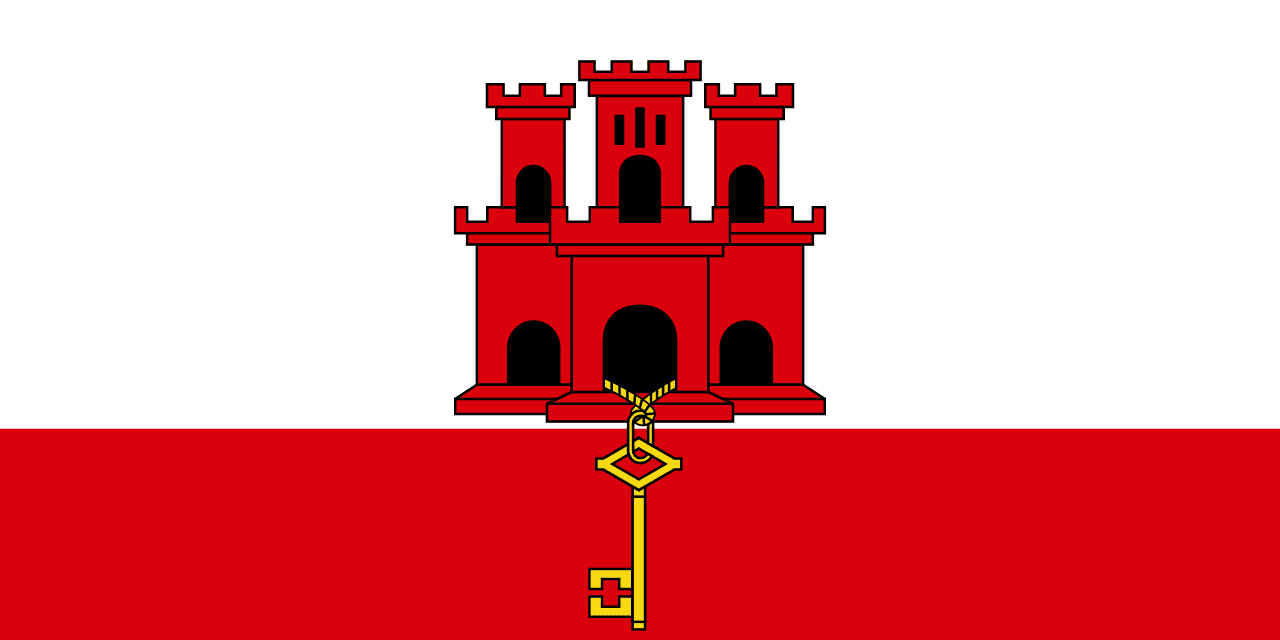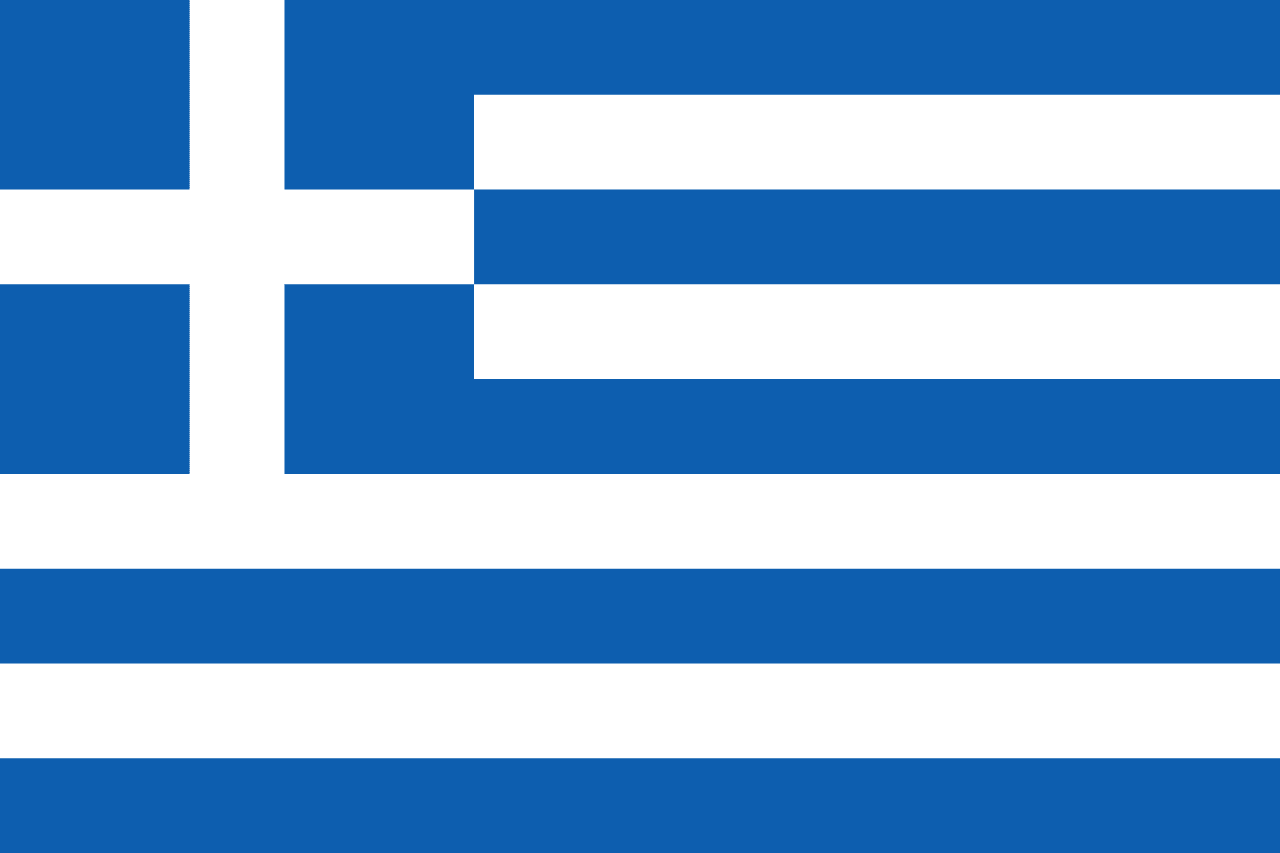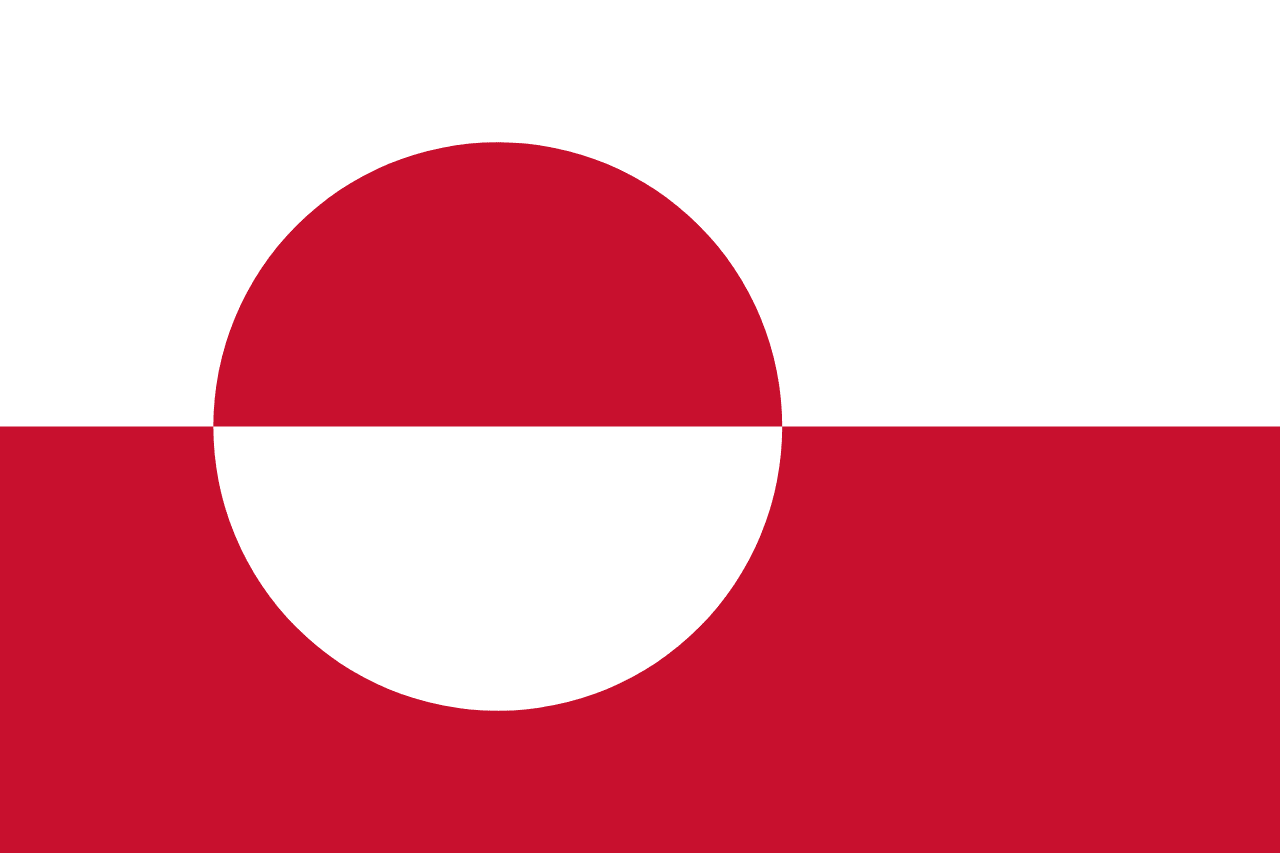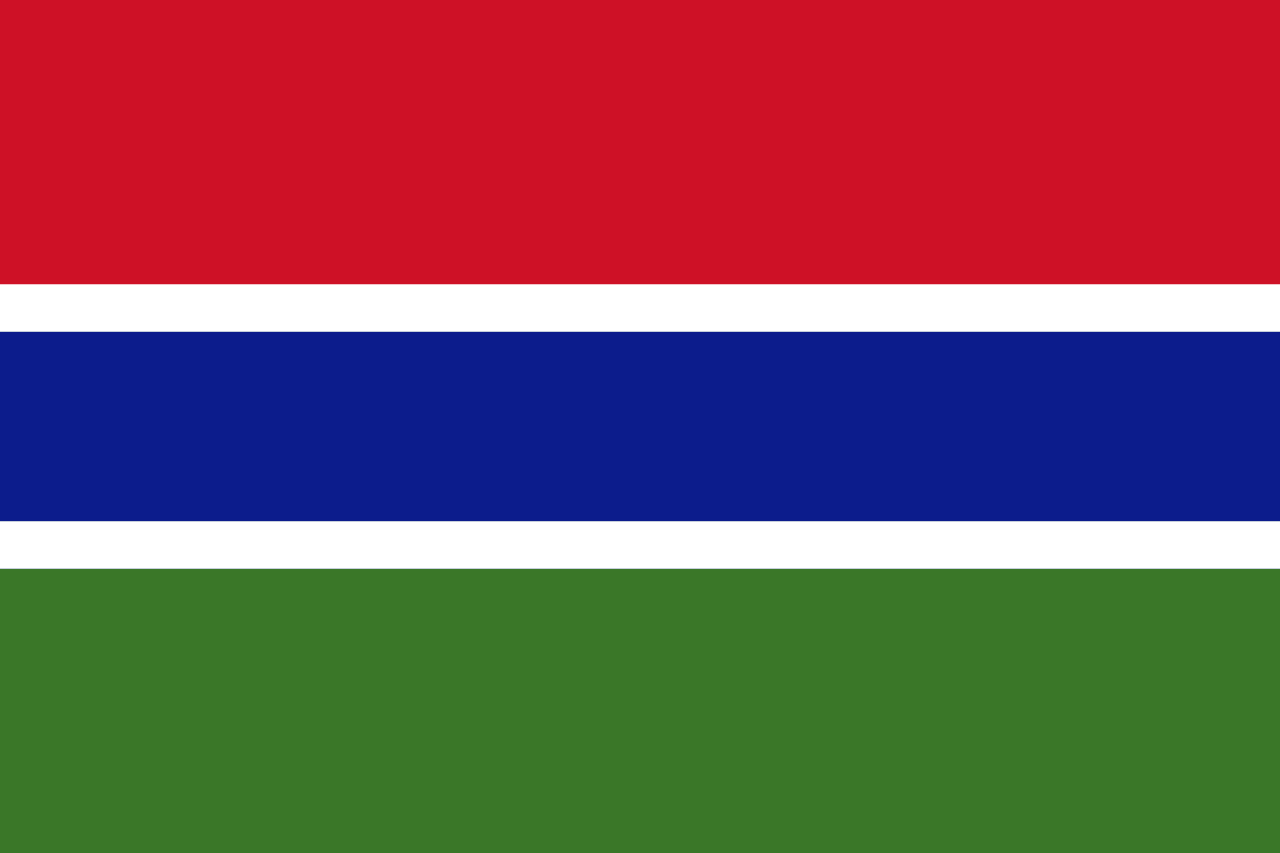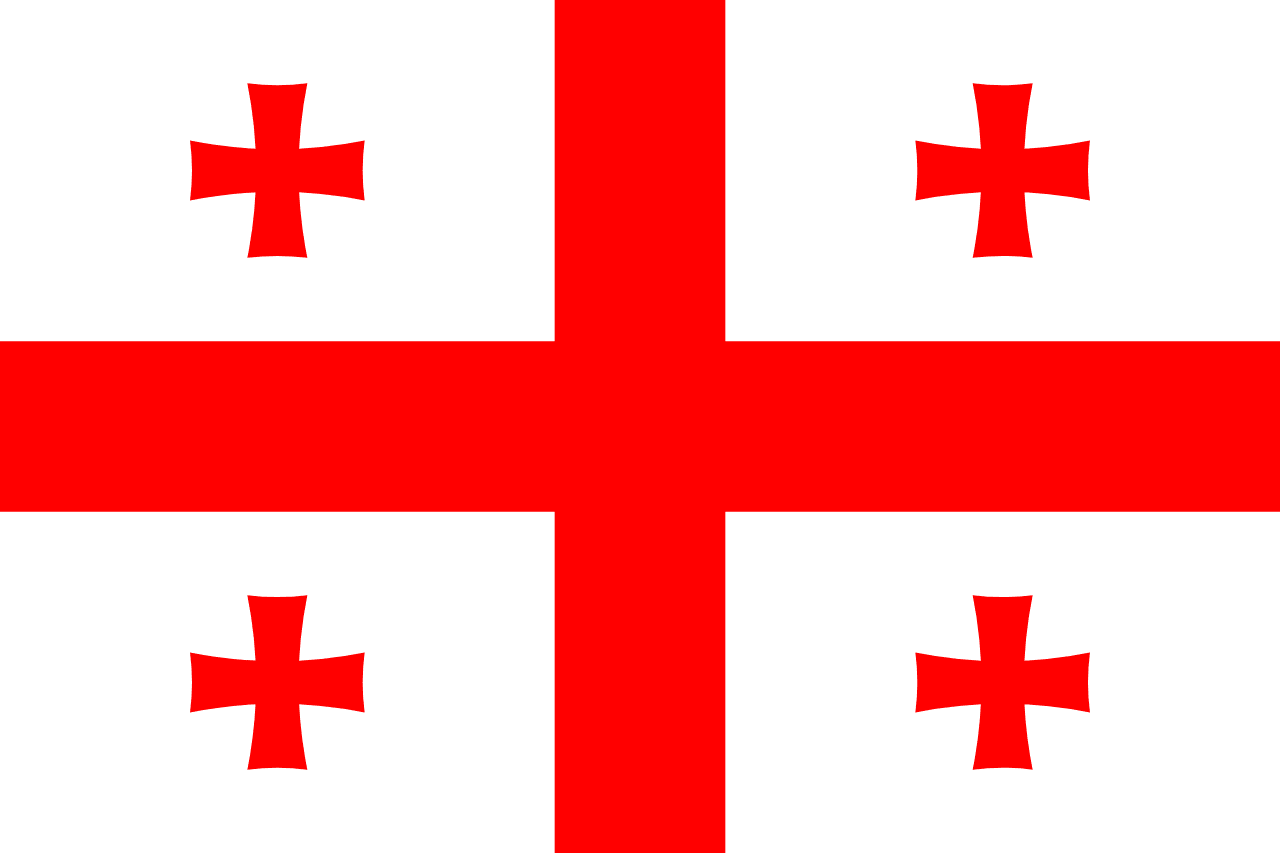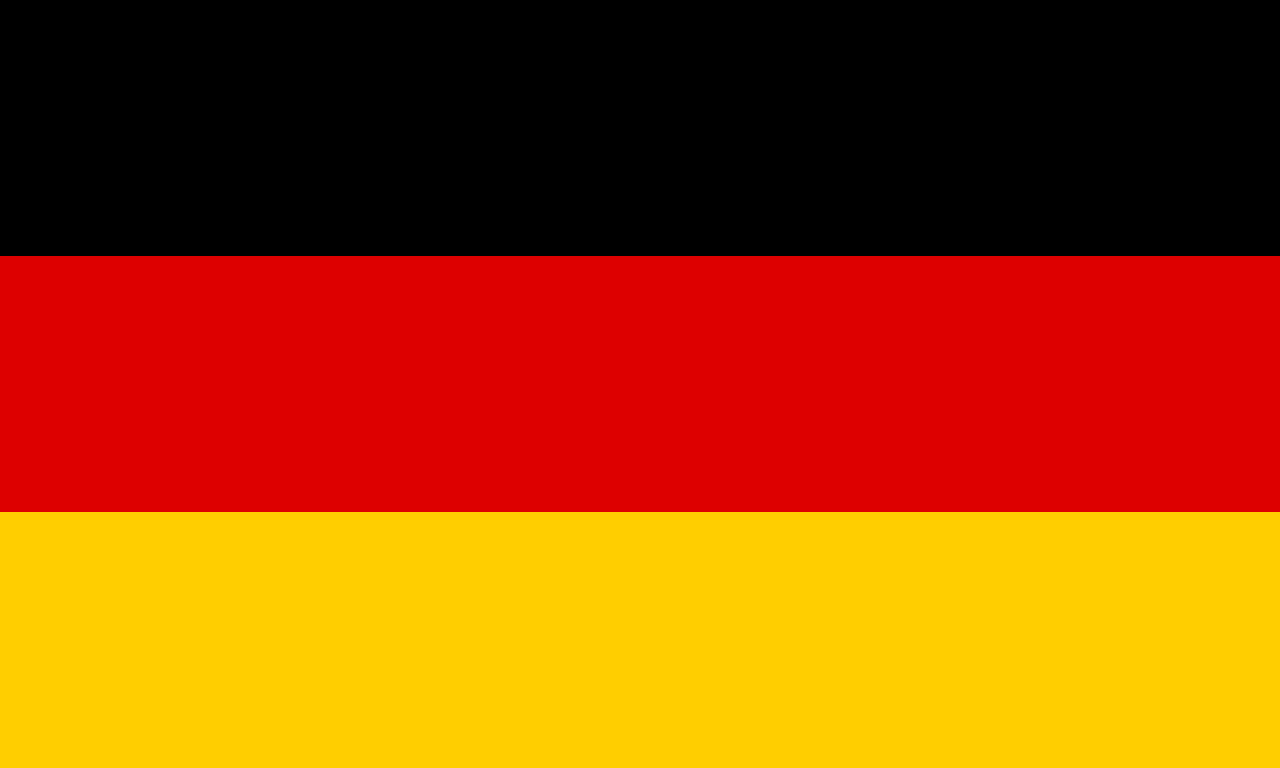The flag of Ghana consists of three horizontal stripes of red, yellow, and green, with a black five-pointed star in the center of the yellow stripe. This vibrant and symbolic design encapsulates Ghana's history, natural resources, and aspirations as a nation, with the red stripe representing the blood shed in the struggle for independence, the yellow stripe symbolizing Ghana's mineral wealth, the green stripe reflecting Ghana's lush forests and agricultural potential, and the black star embodying African emancipation and unity.
Ghana information
| National Flag Day | March 6 |
| Sovereign state | Yes |
| Official name | Republic of Ghana |
| Capital | Accra |
| Population | 31,072,945 |
| Area | 238,533 km² |
| Currency | Ghanaian cedi (GHS) |
| Language | English |
| Continent | Africa |
| Region | West Africa |
| Subregion | — |
| Borders | Côte d'Ivoire, Burkina Faso, Togo |
| Timezone | Greenwich Mean Time (GMT) UTC±0 |
| Calling code | +233 |
| Top-level domain | .gh |
History of the Ghanaian Flag
 The Ghanaian flag was adopted on March 6, 1957, when Ghana gained independence from British colonial rule. This historic moment marked Ghana as the first sub-Saharan African country to achieve independence, setting a precedent for other African nations. The flag was designed by Theodosia Salome Okoh, a Ghanaian artist and teacher, who drew inspiration from the Pan-African movement and Ghana's natural wealth.
The Ghanaian flag was adopted on March 6, 1957, when Ghana gained independence from British colonial rule. This historic moment marked Ghana as the first sub-Saharan African country to achieve independence, setting a precedent for other African nations. The flag was designed by Theodosia Salome Okoh, a Ghanaian artist and teacher, who drew inspiration from the Pan-African movement and Ghana's natural wealth.
Symbolism and Design of the Ghanaian Flag
The flag of Ghana is rich in symbolism, with each element carefully chosen to represent different aspects of the nation:
- Red Stripe: Symbolizes the blood shed in the struggle for independence and the ongoing efforts for nation-building.
- Yellow Stripe: Represents Ghana's mineral wealth, particularly its gold reserves.
- Green Stripe: Reflects Ghana's lush forests and agricultural potential.
- Black Star: Centrally placed on the yellow stripe, the black star is a powerful symbol of African emancipation and unity.
Usage and Significance of the Ghanaian Flag
 The flag of Ghana is a source of immense national pride and is prominently displayed during national holidays, official ceremonies, and sporting events. It flies on government buildings, schools, and public spaces across the country. The flag represents Ghana's sovereignty, cultural heritage, and its role as a beacon of independence in Africa.
The flag of Ghana is a source of immense national pride and is prominently displayed during national holidays, official ceremonies, and sporting events. It flies on government buildings, schools, and public spaces across the country. The flag represents Ghana's sovereignty, cultural heritage, and its role as a beacon of independence in Africa.
Internationally, the Ghanaian flag is recognized as a symbol of African independence and progress. It is often seen at global forums, representing Ghana's active participation in international affairs and its commitment to global cooperation.
Interesting Facts About the Ghanaian Flag
- Ghana was the first African country south of the Sahara to gain independence from colonial rule on March 6, 1957, under the leadership of Kwame Nkrumah, making its flag a pioneering symbol of African liberation.
- The colors of the Ghanaian flag—red, yellow, green, and black—are often referred to as the Pan-African colors, symbolizing unity and solidarity among African nations.
- The black star on the flag was inspired by the Black Star Line, a shipping company founded by Marcus Garvey to promote African-American resettlement in Africa.
- Ghana's national football team is nicknamed the "Black Stars" after the star on the flag, showcasing how deeply the flag's symbolism is integrated into national identity.
- The flag's designer, Theodosia Salome Okoh, was also an accomplished hockey player and later became the first female chairman of the Ghana Hockey Association.
- The Ghanaian flag has remained unchanged since its adoption in 1957, a testament to its enduring significance and the stability of Ghana's national identity.
The flag of Ghana stands as a powerful symbol of African independence, natural wealth, and the aspirations of a nation that continues to play a significant role in shaping the future of the African continent.
